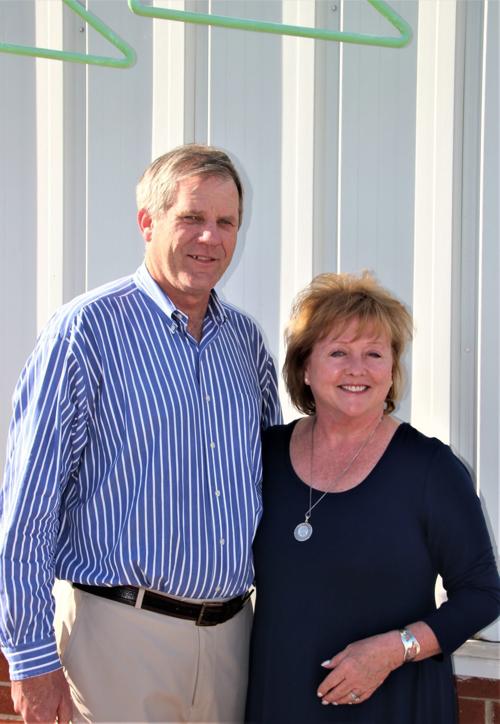Shaffer Dry Cleaning and Laundry is a perfect example of how a business is able to grow and be profitable, especially over 50 years. Shaffer is a family-business success story.
The patriarch, Bill Shaffer, with his partner, Victor Ray, opened their first dry-cleaning store in 1969 at the corner of Ajo Way and 12th Avenue. The business now has nine stores throughout the Tucson area.
To go from one store to nine, and sustain success over five decades, should be enough of a great story. What’s most interesting about the story, though, are some other facts that make 50 years of sustained success an even more impressive achievement. Consider the following:
- Historically, the dry-cleaning industry is not at the top of anyone’s “eco-friendly” list. Environmental compliance is expensive and a barrier to profitability and growth.
- The dry-cleaning industry is retracting. In the Tucson area, four dry cleaners have closed locations in the last 90 days. Immediate causes are the “casual Friday” trend in business (fewer pieces of clothing to dry clean) and newer easy-care textiles (less need for dry cleaning).
- The tidal wave of consumers who are buying more and more online. They want the business to come to them instead of them having to go to the business.
These trends would challenge the sustainability of any business. I met with Patricia and Bake Shaffer, second-generation owners, to learn how they bucked the trends and continue to grow.
Their answer was simple — continue to re-invent. As times and economic realities change, stay close to the customer. Observe trends and listen to what customers want. Find a way to deliver on customer needs in an economically sound and profitable manner.
On second thought, not exactly simple. How these fundamentals play out in the dry-cleaning business proved both interesting and challenging.
Challenge No. 1: environmental issues. Bake Shaffer joined his father’s business in 1983. At the time, the entire dry-cleaning industry used a chemical commonly known as PERC (perchloroethylene). PERC is harmful when inhaled or when it comes into contact with skin.
One of Bake’s first jobs was to load and unload the dry-cleaning machines. The first time he put his head in the machine, he knew that the continued use of PERC was a non-starter, not good for him or for their customers.
Embarking on several years of research, Bake found a silicone-based solvent called GreenEarth Cleaning that effectively cleans clothing and textiles without leaving harmful chemicals behind. Green Earth is eco-friendly, non-allergenic, has no odor, and is gentle on clothes.
The Shaffer’s safe method for dry cleaning protected the health of customers and employees, along with the Tucson environment.
Challenge No. 2: a retracting industry. Casual dress styles and improving textile technologies are shrinking the number of people who dry clean, and the amount of dry cleaning per customer. When the number of customers shrinks, and the revenue per customer shrinks, a business needs to find new revenue streams.
Shaffer did just that. New revenues came from expanded services. They provide cobbler services to fix shoes, designer handbag cleaning, leather repair and cleaning, rug reweaving and drapery cleaning.
Challenge No. 3: virtual interactions between consumers and retailers. The online buying trend is moving brick and mortar retail stores closer to obsolescence. Consumers want the convenience of shopping from home.
For a dry cleaner, this means people are less inclined to find the time to stop by a storefront to drop off their clothes, then return to pick them up. The Shaffers listen and adapt. They currently offer home pickup and delivery on four different neighborhood routes. Pickup and delivery is the largest growth segment of their business, as they’re in the midst of evaluating new neighborhoods and routes to add.
As the Shaffers explained, they are an evolving retail business. They provide Shaffer garment and laundry bags to households for pickup and delivery of dry cleaning and wash-and-fold laundry services. The Shaffer- branded bags help cement the relationship with the customer. Everything a customer wants Shaffer to clean is in one convenient place.
On the business side, opening a new route is less expensive than a new store location. The service to the consumer is much more convenient, and the price is the same as if the customer dropped off their clothing. Better service at a lower cost equals more revenue and more profit.
With each trend that raised barriers to success, Shaffer listened to customers, learned what they wanted and adapted to serve their needs. The business is celebrating its 50th anniversary this year. We can expect the Shaffer approach will lead them to another 50 years of success.





